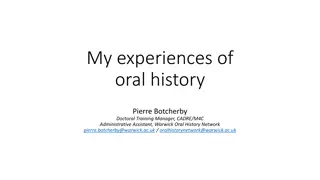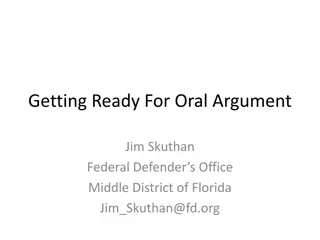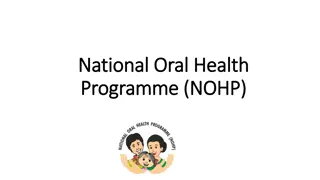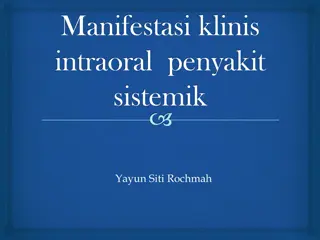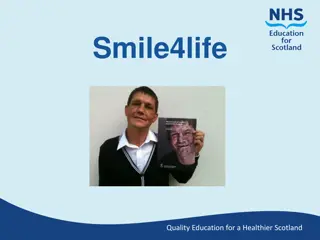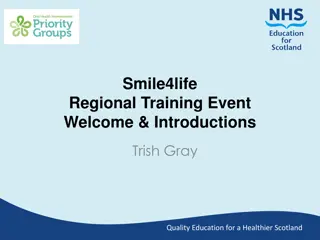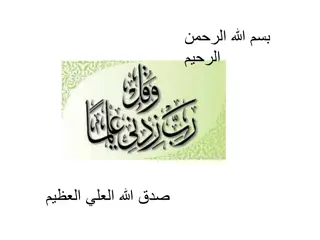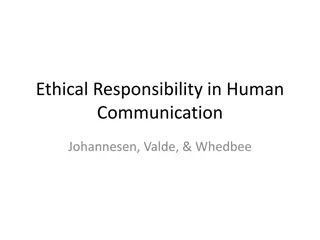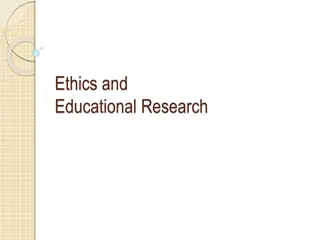Exploring Ethical Considerations in Oral History Research
Delve into the ethical implications of oral history research by examining useful ideas, types of ethical issues, and practical advice. Explore resources offered by institutions like the University of Warwick and the British Library to enhance your understanding and approach to conducting oral history projects. Reflect on the recommended ethical guidelines such as respecting participants' views and ensuring transparency throughout the research process.
Download Presentation

Please find below an Image/Link to download the presentation.
The content on the website is provided AS IS for your information and personal use only. It may not be sold, licensed, or shared on other websites without obtaining consent from the author. Download presentation by click this link. If you encounter any issues during the download, it is possible that the publisher has removed the file from their server.
E N D
Presentation Transcript
Oral History Sources Research Project Week 7
Discussion What useful ideas about using oral history came out of the reading? History Department webpage on Ethical Approval for Research: https://warwick.ac.uk/fac/arts/history/students/und ergraduate/course-research University of Warwick Oral History Network: https://warwick.ac.uk/fac/arts/schoolforcross- facultystudies/research/centre_and_networks/oralhis torynetwork/
British Library Oral History Collections: https://www.bl.uk/collection- guides?subject=Oral%20history Library of Congress, Voices Remembering Slavery: Freed People Tell Their Stories: https://www.loc.gov/collections/v oices-remembering-slavery/about- this-collection/ Library of Congress, Civil Rights History Project: https://www.loc.gov/collections/ci vil-rights-history-project/about- this-collection/ Act Up Oral History Project: https://actuporalhistory.org/ Oral History Collections
Thinking about your project What ethical questions does your own research project present?
What do you think about this advice for undertaking an oral history project? Avoid interviewing participants whose views you may disagree with. Make sure that you do enough secondary research before doing interviews. Make the aims of your research clear to your participants. Ensure that your participants are given the option to either, be named, have a pseudonym or be anonymised. Keep interviews open. Respect your participants time. Listen to your participants. Consult your participants at every stage of the research. Always return your completed research to your participants before publication.
Writing an Abstract Before the next seminar, write an abstract (max. 150 words) for your research project. An abstract distils the core argument and contributions to extant scholarship of a piece of published scholarship. Most academic journal articles are prefaced by an abstract Abstracts provide readers with a useful guide to both the scope and significance of an essay. In other words, they re more than a short summary of the essay s content. They also indicate why/how the content makes a distinctive contribution to existing literature. It s quite tricky to condense the essence of a long piece of work but it s a very useful art to master, forcing you to nail what it is that you re up to, and what your analysis adds to larger historical debates. There s no room for waffle or padding, so you have to cut right to the chase.
Mathew Thomson Lost Freedom: The Landscape of the Child and the British Post-War Settlement Chapter 1, The Image of Lost Freedom Abstract: This chapter suggests that photography provides us with a powerful reminder of the presence of children in the streets and spaces of our cities in the middle of the twentieth century. However, it also recognizes that these images are complicated by nostalgia, and that this is one of the reasons why this had become a central image for modern British history. Considering a range of images from the interwar period to the 1970s, including professional but also amateur photography, it also argues that this work reveals an emerging interest in the perspective of the child. By the 1970s, the child of such photography was portrayed no longer as a mere victim of the environment and social deprivation but was recognized as a purposive agent in subverting and giving meaning to surroundings. Keywords: children, photography (amateur/professional), street children, nostalgia, freedom 138 words.
Emma J. Teng, 'Chinese Elites and U.S. Gatekeeping: Racial Discrimination and Class Privilege in Boston s 1905 King Incident', Modern American History, 4 (2021): 1 24 In 1905, Boston immigration officials detained four Chinese students of the King family, inciting protest from Euro-American elites and sparking an international controversy that gave momentum to the American Boycott movement in Shanghai. A prominent family, the Kings successfully rallied business leaders to take their cause to President Theodore Roosevelt and effectively used the press to articulate Chinese grievances. Bringing to a head the tension between race-based and class- based interpretations of exclusion that troubled the legislation from its inception, the case prompted key reforms in the administration of Chinese exclusion and helped promote a pivot away from the movement for a wholesale Chinese ban. An examination of this incident and its role in struggles over immigration law illuminates the conflicted position of Chinese elites disempowered by race yet empowered by class status under exclusion. It also provides insights into the agency of Chinese elites in mobilizing resources to combat immigration abuses.


